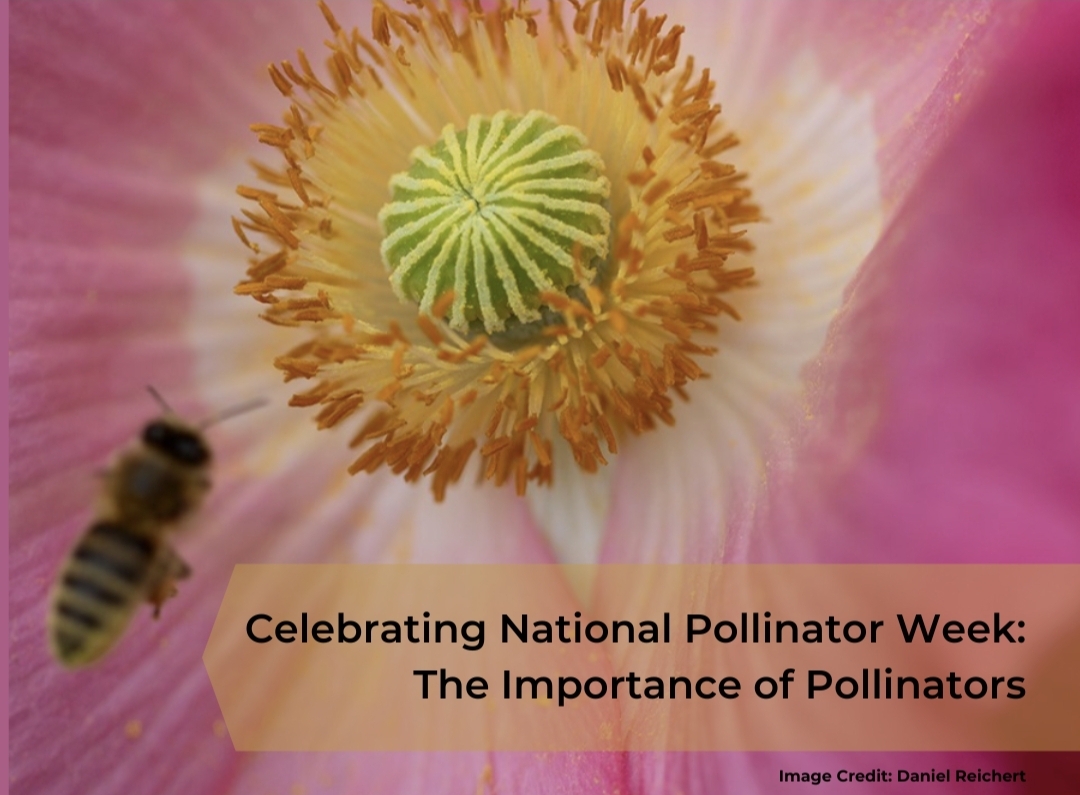I am the type of person who can barely walk past a flower without embracing its beauty. Smelling it, touching it, capturing a picture of it, or merely exclaiming how “cute” it is. I just can’t help it; they truly make me so happy, as they do most people! It’s a spectacular phenomenon how many people are touched by these flowering plants, and how many people neglect to appreciate the pollinators that allow these flowers to grow and stay beautiful.
Pollinators are types of animals or insects that contribute to the reproduction of flowering plants. Flowering plants are much more than just a great gift to buy a loved one. They provide fruits, vegetables, other foods, oils, and fiber and protect the land from soil erosion. Pollinating species include birds, bats, moths, butterflies, wasps, flies, small mammals, and most significantly bees. They are of vital importance to the environment and human society. Pollinators provide plants and crops with pollen for us to eat healthy-grown fruits and vegetables. This has a positive impact on the economy as well because of the large amount of finances that are collected from farming crops. Pollinators are also important because they help support cleaner air quality and support wildlife.
Unfortunately, the pollinating species are in decline. There are many contributing factors to this decline but two of the greatest are the lack of habitats and the environmental impact of pollution. Pollinator’s nesting habitats are either being torn up due to the changing of natural spaces, non-existent because of the lack of green spaces in many areas, or people don’t understand the best ways to grow a strong pollinator-friendly garden. The impact of rapid climate change is negatively affecting the pollinating species, as well as the many harmful pollutants in the atmosphere.
To support the health of the many pollinator species on Earth, the Pollinator Partnership instituted National Pollinator Week. Created in 2017, National Pollinator Week was established to bring awareness to pollinators’ health and educate society on how to be better citizens for pollinators. This year National Pollinator Week occurred from June 17-June 23, and even though that week has passed, it is still an important topic to bring up any week of the year. The great thing about National Pollinator Week is that there are many ways to celebrate it.
Pollinator Partnership has created the 2024 Official Pollinator Week Toolkit to help people like you and me celebrate National Pollinator Week and become more aware of the importance of pollinators. People can promote pollinator health through virtual webinars, planting sessions, garden walks, in-person events, and even portraying yellow lighting on local establishments and government buildings. Again, there are many things we can do for National Pollinator Week (all listed on page 5 of the toolkit), but the most satisfactory way is to build your pollinator-friendly habitat if you have access to a green space. Take some time to research ways to create a pollinator garden, and then get your hands dirty! Gardening is a therapeutic sensation, so take it as a form of self-care when creating a beautiful space for yourself and the pollinators!
Her Nexx Chapter invites you to join our free Community where women from around the world are connecting with each other’s stories, exploring different experiences, and transforming ideas.
The Future of Connection for Women








0 Comments